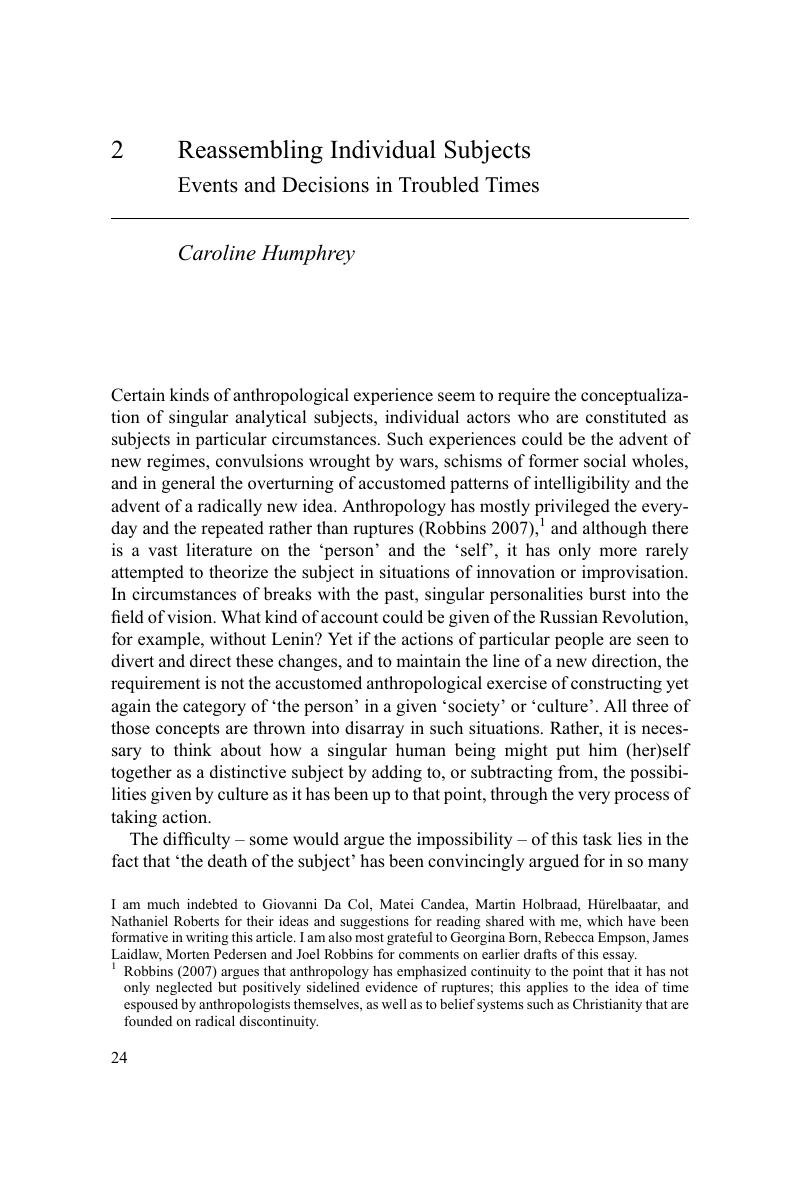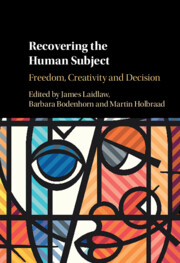2 - Reassembling Individual Subjects
Events and Decisions in Troubled Times
Published online by Cambridge University Press: 01 February 2018
Summary

- Type
- Chapter
- Information
- Recovering the Human SubjectFreedom, Creativity and Decision, pp. 24 - 50Publisher: Cambridge University PressPrint publication year: 2018
References
- 1
- Cited by

